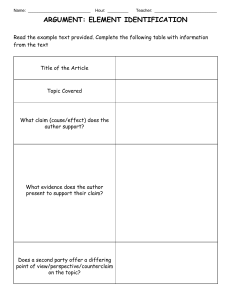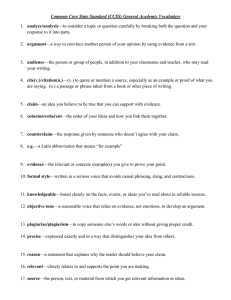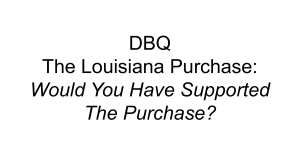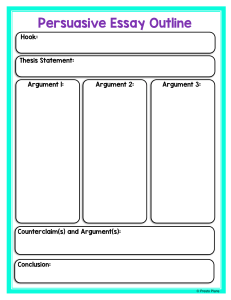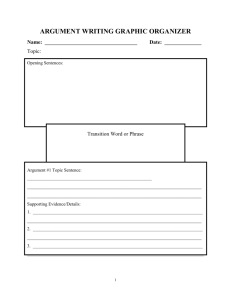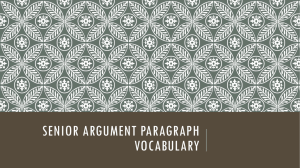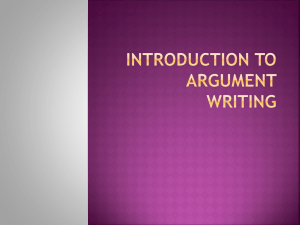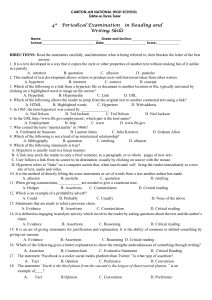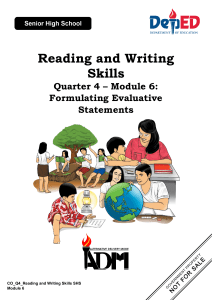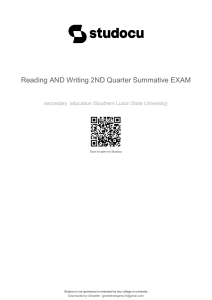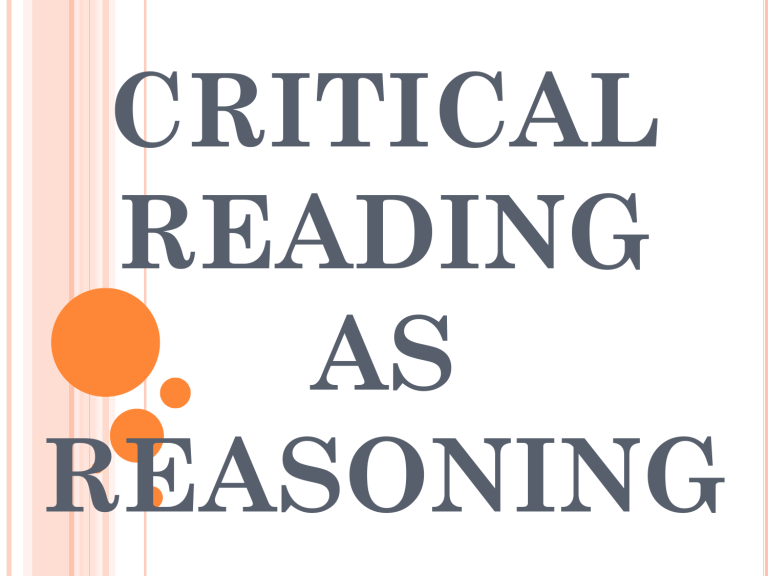
CRITICAL READING AS REASONING Reading critically does not, necessarily, mean being critical of what you read. Both reading and thinking critically don’t mean being ‘critical’ about some idea, argument, or piece of writingclaiming that it is somehow faulty or flawed. Critical reading means engaging in what you read by asking yourself questions such as, ‘what is the author trying to say?’ or ‘what is the main argument being presented? Critical reading goes further than just being satisfied with what a text says, it also involves reflecting on what the text describes, and analysing what the text actually means, in the context of your studies. AS A CRITICAL READER YOU SHOULD REFLECT ON: What the text says What the text describes Interpretation of the text CRITICAL READING requires you to evaluate the arguments in a text need to distinguish fact from opinion being aware of opinions and assumptions (positive and negative) aware of the writer’s background, assumptions and purposes WHAT IS REASONING? According to MerriamWebster Dictionary, reasoning is an act of giving statements for justification and explanation. It is the ability of someone to defend something by giving out reasons. EVALUATIVE STATEMENTS It is a way of giving better explanations It presents a value of judgement based on a set of criteria It is used in giving a sound judgment- a judgment that can be backs up or supported by valid reasons or proofs It is the writers way of explaining why a strength is a strength and a weakness is a weakness based on the evidence gathered. FORMULATION OF THE EVALUATIVE STATEMENT formulated after having read the text carefully and critically. Grasping the essence of the text and checking for possible fallacies in the argument. 2 STEPS IN COMPOSING YOUR EVALUATIVE STATEMENT 1. 2. Formulating assertions about the content and the properties of a text Formulating the meaningful counterclaim in response to a claim made in a text. Assertion. When someone makes a statement investing his strong belief in it, as it is true though it may not be, it is called assertion. Counterclaim. When someone makes an opposing counterclaim statement or argument to a claim, he is making a counterclaim. Hedges. Is a word or phrase that minimizes negative impact of criticism. When you are presenting your counterclaim, you are providing criticism since you are stating that the claim is not true. Hadges. Used to give a courteous tone in your writing.
